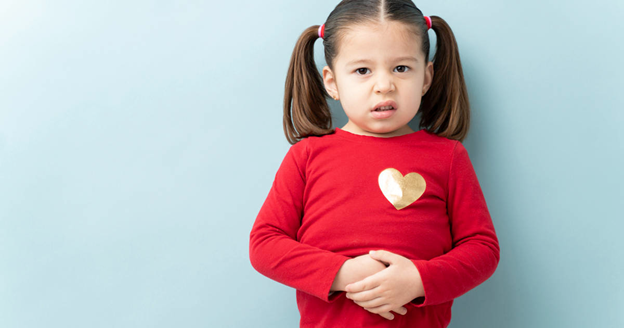Diarrhea is a common ailment in children, particularly in India, where specific dietary and environmental factors can exacerbate the issue. Parents and caregivers must grasp essential knowledge about this condition. Proper understanding can lead to better preventive care and effective management of diarrhea in children. By being informed, parents can improve their children’s health outcomes and reduce hospital visits. The aim here is to provide actionable tips that can help mitigate the incidence and address existing cases efficiently without resorting to intricate medical terminologies.
Recognizing Signs and Symptoms
Recognizing the symptoms of diarrhea in children early is crucial. The condition often presents as watery or loose stools and increased frequency of bowel movements. Monitoring the child’s stool is vital for evaluating the severity. Look for signs of dehydration, such as dry mouth, lack of tears when crying, and reduced urination. Identifying these symptoms promptly can prevent severe health issues. Parents should always be vigilant for these red flags to ensure timely intervention and treatment. Early recognition and appropriate response can avoid unnecessary complications.
Common Dietary Causes in Indian Children
Diet plays a significant role in causing diarrhea in children. Indian dietary habits, such as consuming spicy foods and street foods, can trigger diarrhea. These foods might be tasty but can be harsh on young tummies. Many food stalls lack proper hygiene, contributing to infections. For better nutrition, parents should focus on balanced meals including plenty of fruits, vegetables, and grains. Avoiding oily and spicy foods can help. Ensuring children stay hydrated is also essential. Here’s what parents can do:
- Serve home-cooked meals for better hygiene.
- Encourage regular water intake.
- Limit street food, especially during hot weather.
- Introduce more fiber-rich foods to maintain digestive health.
Importance of Hygiene and Sanitation
Practicing good hygiene is vital to preventing diarrhea in children. Simple habits like washing hands with soap before meals can prevent germs from spreading. Food safety is just as important, with fresh and thoroughly cooked meals reducing the risk of diarrhea. Providing clean drinking water is a necessity. In India, where water pollution can be a problem, using water filters or boiling can protect children. Ensuring household sanitation is up to standard will serve as a protective barrier against diarrhea.
Home Remedies and Over-The-Counter Treatments
When facing mild diarrhea in children, certain home remedies can be helpful. Oral Rehydration Salt (ORS) is effective in keeping dehydration at bay. Alternatively, rice water can serve as a gentle solution. Always keep these remedies on hand. Over-the-counter treatments like oral zinc supplements are also beneficial. However, it’s essential to know when to seek medical advice. If symptoms persist beyond a few days or worsen, a visit to the doctor is necessary. Caregivers should balance between home treatments and professional help wisely.
Addressing Cultural and Traditional Misconceptions
In India, there are various cultural practices surrounding diarrhea in children. Some parents believe in giving herbal concoctions over evidence-based medicine. It is important to address these misconceptions with education focusing on scientifically tested methods. Science-backed treatments are more reliable and can prevent life-threatening outcomes. India needs continuous efforts to educate caregivers about modern healthcare techniques, reducing the dependency on outdated practices, thereby ensuring children receive the best possible care without delay.
Impact of Weather on Diarrhea Prevalence
Weather changes, especially during monsoons, can lead to increased cases of diarrhea in children. Rainwater can contaminate drinking water, leading to infections. Parents should be extra cautious during these times by using purified or boiled water. Also, avoiding outdoor food during monsoons can help reduce risk. Clothing should be weather-appropriate to prevent illnesses. By planning well, parents can protect their children effectively from weather-related diarrhea risks.
Vaccinations and Prevention
Vaccinations are a vital measure against diseases that cause diarrhea in children. Vaccines like the rotavirus vaccine are crucial. These vaccinations are part of the national immunization schedule in India, making them accessible in public hospitals. Such programs have shown effectiveness in reducing diarrhea cases significantly. Parents should ensure their children are up-to-date with vaccinations to provide a robust shield against infections.
Role of Educational Campaigns and Community Initiatives
Educational campaigns and community initiatives play a significant role in reducing diarrhea in children. Many communities focus on raising awareness about hygiene and nutrition. Initiatives led by local groups often emphasize the importance of clean water and proper sanitation practices. Consistent engagement with these programs can significantly reduce diarrhea prevalence. These efforts illustrate the power of community in addressing public health challenges effectively.
Economic and Emotional Impact
Diarrhea in children not only affects health but has financial and emotional repercussions for families. Frequent doctor visits and associated costs can strain budgets. Emotionally, seeing a child suffer is distressing for any parent. Preventive strategies, such as maintaining good hygiene and following a balanced diet, can help mitigate these impacts. By investing time in preventive measures, families can avoid the broader economic and emotional toll associated with frequent diarrhea episodes.
When to Seek Professional Medical Advice
Knowing when to seek help is crucial in managing diarrhea in children. If symptoms like severe dehydration, persistent vomiting, or blood in stools occur, seek medical advice immediately. Pediatricians play a critical role in diagnosing and treating more severe cases, providing comfort and care tailored to children’s needs. Regular consultations with a healthcare professional help in monitoring and managing children’s health effectively.
Conclusion
Being informed about diarrhea in children can lead to effective prevention and treatment. By recognizing early signs, ensuring proper dietary and hygiene practices, and seeking timely medical advice, caregivers can safeguard their children’s health. Community efforts and awareness campaigns are vital. Together, we can support better wellness for children, allowing them to lead healthy, happy lives with fewer health setbacks.

